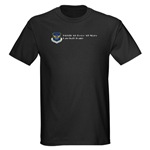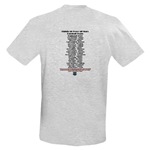

|
|
Monte Weaver
Date and Place of Birth: June 15, 1906 Helton, North Carolina
Died:
June 14, 1994 Orlando, Florida
Baseball Experience: Major League
Position: Pitcher
Rank: Second Lieutenant
Military Unit: 65th Fighter Wing, USAAF
Area Served: European Theater of Operations
Hall of famer Carl Hubbell was one of the toughest pitchers to beat in his time. But in the fourth game of the 1933 World Series, the Giants’ left-handed screwballer faced one of his toughest challenges in an 11-inning duel with the Senators’ Monte Weaver.
Montie M “Monte” Weaver was born in
the mountains of northwest North Carolina on June 15, 1906. The
house where he was born in Helton, Ash County, North Carolina still
stands. Some years ago I met with Weaver’s grandson, Richard Weaver,
who told me that folks in Ash County still remember Monte. “Ash
County is a close-knit community,” he explained. “Whenever a member
of the family goes to visit the area they’re made to feel like
royalty. It’s nice to know he’s not forgotten down there even after
all these years.”
In 1924, the 18-year-old attended
Emory and Henry College, a small Methodist college in southwest
Virginia. To pay his way he pitched for a semi-pro colliery league
team in Jenkins, Kentucky, earning $300 a month. The big leagues,
however, were a long way from his mind. He was working towards a
master’s degree in mathematics studying the safe speed of railroad
trains relative to the curvature of the tracks. He later joined the
elite faculty at the University of Virginia, where he taught
analytic geometry and was on his way to getting a doctor’s degree
until baseball beckoned during the summer of 1928.
Based on his semi-pro performances,
Weaver – aged 22 – was coaxed to join Durham in the Piedmont League
where he started and completed 19 games, regularly pitching on just
two days rest. “My grandfather was offered a Rhodes scholarship at
about the same time he started playing pro ball,” explains Richard
Weaver. But there was no looking back. By 1931 he was a 20-game
winner with the Baltimore Orioles of the International League and
the ever cautious Clark Griffith, who had often seen Weaver pitch
against the Senators in spring training, bought him to Washington in
September 1931 at a cost of $25,000.
Weaver won his first four starts in
1932 with an up-and-coming Senators team that included Heinie Manush,
Joe Kuhel, Buddy Myer, Ossie Bluege and Joe Cronin, the rock-solid
shortstop and future manager. Lloyd Brown and Tommy Thomas were on
the pitching staff and Alvin Crowder had a career year with 26 wins
for the third place club. Weaver was 22-10, fifth most wins in the
American League.
The tall, laconic right-hander was
visibly of academic bearing and soon earned the nickname “Prof” from
his teammates. One can only wonder at the conversations he must have
had with batterymate and fellow academia, Moe Berg.
In 1933, Weaver struggled with a
shoulder injury and could manage only ten regular season wins but
realized the ambition of all pitchers when, on October 6, he started
the fourth game of the World Series against the Giants.
New York took the first two games at
the Polo Grounds but Earl Whitehill shutout the Giants, 4-0, in the
third game. Weaver faced Carl Hubbell in the fourth game in what
seemed an impossible task of trying to tie the series at two games
each. The game started with all the makings of an unexpected
pitchers’ duel as Weaver and Hubbell kept a blank scoresheet through
the first three innings. It was Giants’ manager Bill Terry who broke
the ice in the fourth inning. “We were going along,
nothing-to-nothing, and Bill Terry came up,” Weaver recalled in a
1992 Sports Collectors Digest interview. “They put up
temporary bleachers in right field – that was the short field. They
wanted to seat more people. He [Terry] hit a nice fly ball that just
got into that temporary bleacher. That was a home run.”
From then on it remained a
head-to-head duel until Hubbell muffled a bunt in the seventh that
tied the game. Both starters remained as the game went into extra
innings. In the top of the eleventh the Giants rallied as Travis
Jackson bunted safely down the third base line, was bunted to second
and scored on Blondy Ryan’s ground ball through the infield. The
Senators did not give up easy, however. Runners reached second and
third with one out before an intentional walk set up a double play
to end the game and World Series’ fame for Weaver.
Weaver remained on the Senators’ staff
through 1938 although his glory days were behind him. He was sold to
the Red Sox in March 1939. “They had bought the Louisville club in
the American Association,” Weaver told the Sports Collectors
Digest. “That’s why they bought me. They couldn’t get me out of
the league on waivers until the middle of July.” Weaver was used
sparingly before joining the Colonels.
Weaver continued to pitch in the
minors until 1941 working 53 games in relief for the Baltimore
Orioles. The following year, with the United States at war, he
joined the Army Air Force. He trained as an air traffic controller
in Orlando, Florida and was sent to England with the Eight Army Air
Force in July 1943. Stationed at Fighter Command headquarters in
Saffron Walden, Second Lieutenant Weaver’s duties included
organizing ball games for the servicemen and even pitching a few
innings here and there.
After 27 months overseas Weaver
returned to the United States in November 1945. “After World War II
I moved to Florida,” he told Sports Collectors Digest. “When
I came home I thought I would go live in Washington – I had some
apartments up there – but I didn’t like Washington. It wasn’t like
the city was when I left it. Overcrowded and everything. So I came
to Orlando and got into an awning business and then I got into the
grove business.”
Weaver and his wife, Roberta, bought
their first grove in 1951, and within a few years they owned three
groves producing an abundance of oranges and grapefruit.
In Weaver’s latter years, nephew
Richard recalls how his grandfather used to enjoy talking about his
playing days. “Montie loved nothing better than to sit on his porch,
overlooking the lake at the front of his home in Orlando and talk
about baseball and the good old days in the mountains of North
Carolina. All you had to do was start him off and he could talk
right through to the early hours.”
Montie Weaver passed away on June 14,
1994, a day before his 88th birthday. His passing was
virtually ignored by most sports papers, an event that so riled
Shirley Povich, the much respected veteran sports writer with the
Washington Post, that he devoted an entire column to Montie
Weaver. Povich claimed Weaver had “a strong claim on the memory of
Washington baseball fans and the game’s historians” as a “far cut
above the common mold of big league ballplayer.”
Perhaps the most surprising oversight
however is that Montie Weaver has failed to be inducted into the
North Carolina Sports Hall of Fame.
Thanks to Montie's grandson Richard Weaver, and Montie's late wife,
Roberta, for help with this biography.
Created January 8, 2007. Updated August 16, 2007.
Copyright © 2008 Gary Bedingfield (Baseball
in Wartime). All Rights Reserved.
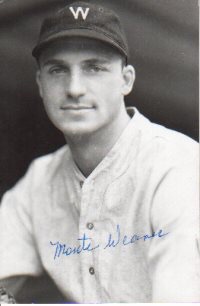
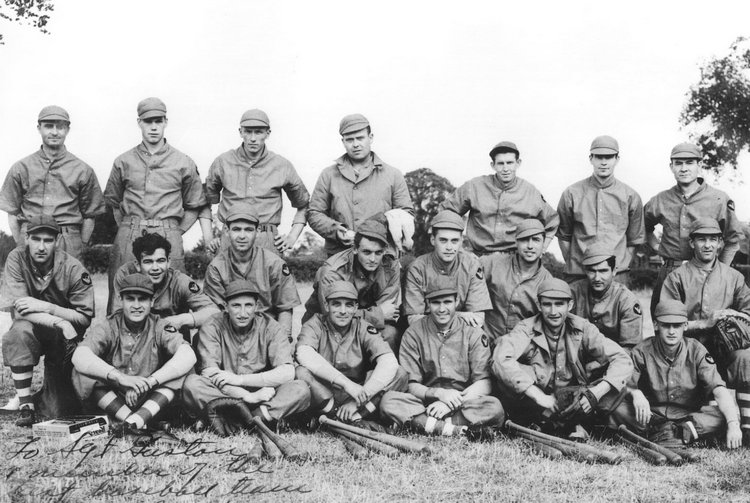
The
Eighth Air Force All-Stars in England, 1943. (Weaver is
back row, first left)
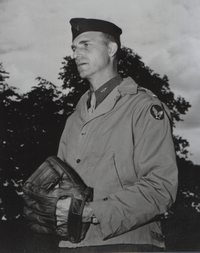
Eighth Air Force All-Stars
T-Shirts
(available from the Baseball in
Wartime Store)
Click here to place your order today!
